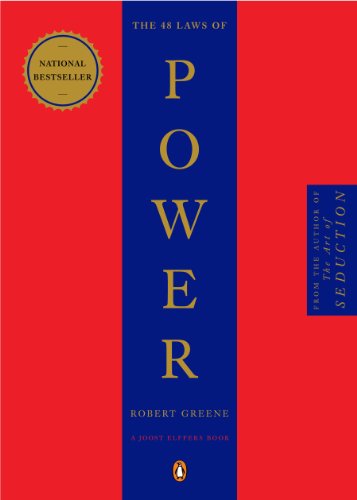

This article is an excerpt from the Shortform summary of "The 48 Laws of Power" by Robert Greene. Shortform has the world's best summaries of books you should be reading.
Like this article? Sign up for a free trial here .
What is 48 Laws of Power about? Why is it so popular?
The 48 Laws of Power is a book by Robert Greene about the “laws” that powerful people throughout history have used to get and maintain power.
Keep reading to answer the question “What is 48 Laws of Power about?” and see examples of three top laws.
Overview: What is 48 Laws of Power About?
In The 48 Laws of Power, Robert Greene contends that since you can’t opt out of the game of power, you’re better off becoming a master player by learning the rules and strategies practiced since ancient times.
People can’t stand to be powerless. Everyone wants power and is always trying to get more. Striving for and wielding power is a game everyone participates in, whether they want to or not. You’re either a power player or a pawn someone else is playing with.
So, what is The 48 Laws of Power book about? Greene has codified 48 laws of power based on examples and writings going back 3,000 years of people who’ve excelled or failed at wielding power, with glorious or bloody results. Greene argues that following the 48 laws will generally increase your power, while failing to follow them will decrease it, or worse. He provides details on how to practice the laws, plus examples and analysis.
The History of the 48 Laws of Power
Many of the laws originated or were exemplified in the aristocratic courts of old Europe, where a bevy of courtiers jockeyed for influence around a powerful person. There were clear principles and rules of conduct that everyone knew, but applying them was a high art at which only a few succeeded, and not always for long.
Courtiers served the king while scheming to increase their power, defend it from others, and keep others from undermining or surpassing them. They appeared civilized and refined, but were ruthless and ambitious beneath the surface. At the same time, they had to be subtle: Courtiers sought power by sucking up to the king, but if they got too obvious about it, their peers (who had the same goal) would turn on them.
Staying on top and increasing your power required strategy and tactics, but at the heart of the game lay an essential skill — deception, which was employed in myriad ways.
Since then, the game of power hasn’t changed much, although it’s gotten a bit less bloody (more heads roll figuratively than literally). To practice deception effectively requires an understanding of human behavior (your own and others’), the relentless study of the people around you, complete self-control, outward charm, adaptability, strategic thinking, and deviousness.
To give you a good sense of the laws to answer the question “What is 48 Laws of Power about?” we’ll cover some examples of some of the most popular laws from The 48 Laws of Power (each is independent, so you don’t need to follow them in sequence), along with Greene’s warning of the seductive quality of power: it can consume your mind, and you might never see human behavior the same way again.
Law 1: Never Outshine the Master
Law 1 states that when it comes to power, eclipsing the boss is a particularly dangerous mistake. People in power need to feel secure in their position, superior to others in intelligence and charisma, and deserving of their perks. When they feel insecure, they lash out.
Whenever you demonstrate your talents you provoke resentment and envy (manifestations of insecurity) in others, whether they’re bosses, subordinates or peers. Of course, you can’t spend your life worrying about everyone’s petty jealousies, but you need to pay special attention to your approach with superiors because of their greater ability to harm you. Read more about Law 1 of the 48 Laws here.
Law 3: Conceal Your Intentions
Law 3 says to always hide your true intentions. If you keep people off-balance and in the dark, they can’t counter your efforts. Send them down the wrong path with a red herring or create a smokescreen and by the time they realize what you’re up to, it will be too late for them to interfere.
For instance, you can divert attention from your true goals by making it look as though you support an idea or cause you previously opposed publicly. Most people will believe you had a true change of heart because people don’t usually change sides frivolously. Read more about Law 3 here.
Law 15: Crush Your Enemy Totally
History is replete with examples of leaders who defeated their enemies but left them alive out of mercy. Of course, the opponent always bided his time, becoming ever more resentful and determined, until he was strong enough to seek revenge.
Your enemies feel nothing but animosity for you, and want to eliminate you. The only way to have security and peace is to do to them what they would do to you. When you get the upper hand, don’t hesitate to deliver the final blow. This doesn’t necessarily mean killing them, but at minimum neutralizing them by totally eliminating their ability to fight back.
———End of Preview———

Like what you just read? Read the rest of the world's best summary of "The 48 Laws of Power" at Shortform . Learn the book's critical concepts in 20 minutes or less .
Here's what you'll find in our full The 48 Laws of Power summary :
- Why you should never outshine your boss
- How to appear like a friend but behave like a spy
- The 6 rules you absolutely must not violate, if you want to be successful






